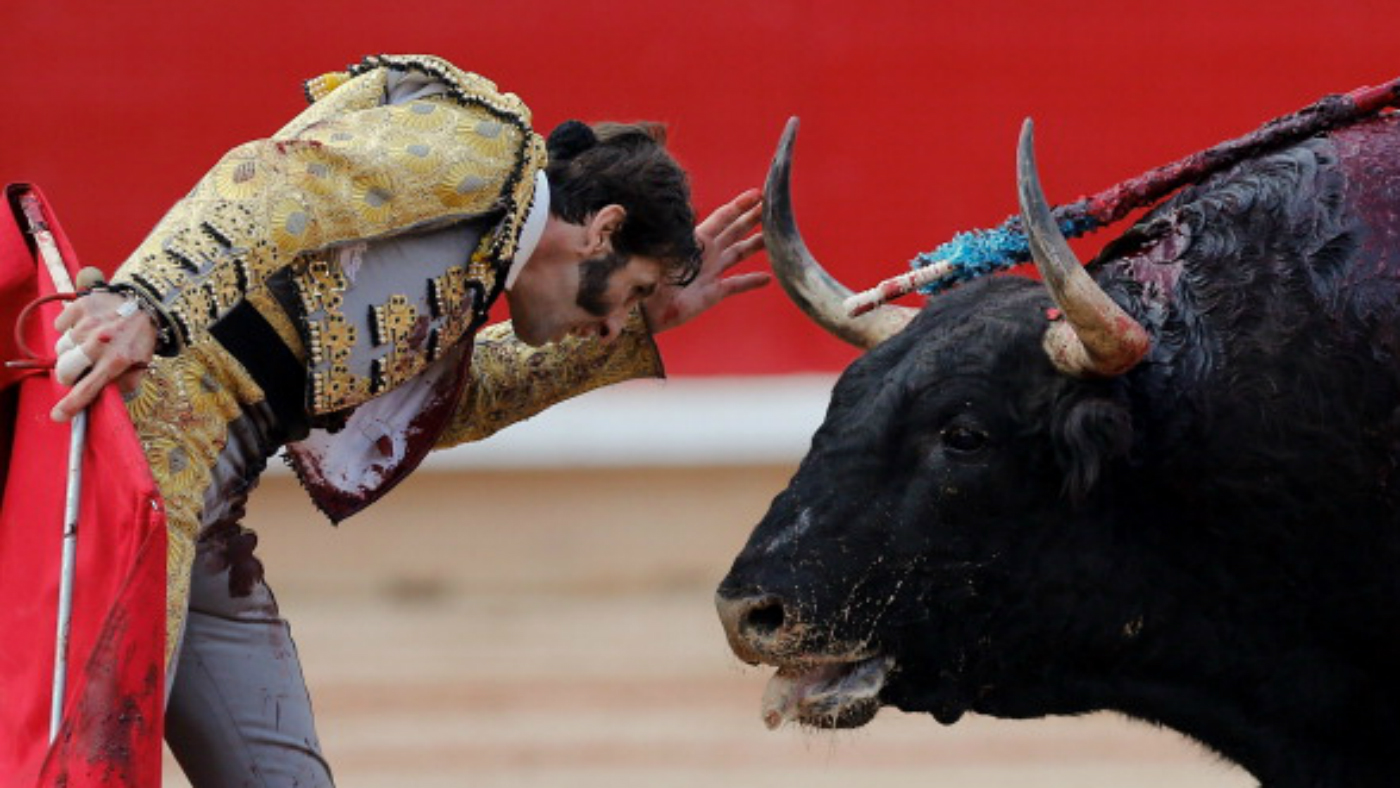Will Spain ever ban bullfighting?
After a second Spanish matador is gored to death in a year, calls are growing for the medieval custom to end

A free daily email with the biggest news stories of the day – and the best features from TheWeek.com
You are now subscribed
Your newsletter sign-up was successful
Bullfighter Ivan Fandino was gored to death during a bullfight in south-west France this week, becoming the second professional to die in the ring in the last 12 months.
"It's a tragedy," a colleague told the Daily Mail. "We just do not know how it could have happened."
Saturday's fatal incident has added to calls from animal rights groups for bullfighting to be banned.
The Week
Escape your echo chamber. Get the facts behind the news, plus analysis from multiple perspectives.

Sign up for The Week's Free Newsletters
From our morning news briefing to a weekly Good News Newsletter, get the best of The Week delivered directly to your inbox.
From our morning news briefing to a weekly Good News Newsletter, get the best of The Week delivered directly to your inbox.
Humane Society International called Fandino's death a "tragedy", but added: "For the 1,000 bulls brutally killed in French bullfights every year, every single fight is a tragedy in which they have no chance of escaping a protracted and painful death."
They added: "Bloodsports like this should be consigned to the history books. No one should lose their life for entertainment, human or animal."
A country divided
Fandino died in France, but bullfighting is more commonly associated with Spain, where the country is divided over its future.
A free daily email with the biggest news stories of the day – and the best features from TheWeek.com
"It's a cultural tradition. As something for which I risk my life for on a regular basis, it demands respect and bullfighting is going through a crucial time," Juan Diego Vicente, president of Spain's bullfighters' union, told the BBC in 2016.
Last year, the country's constitutional court overturned Catalonia's controversial ban on bullfighting, which was imposed by the regional government in 2010.
Of the 12 judges, nine ruled the Catalan parliament had exceeded its authority in banning "one more expression of a cultural nature that forms part of the common cultural heritage".
However, last September, thousands of activists took to the streets of Madrid to demand an end to the tradition after a ban, reports in The Guardian.
Art not sport
Spanish defenders of the corrida argue that the English translation of "bullfighting" is wrong because they perceive it not as a sport but as an artform. Spain's conservative government also appears to take this view and bestowed cultural status on bullfighting in 2015.
It claimed the tradition is responsible for 57,000 jobs and brings in more than £1.2 billion to the economy, reports the Daily Express.
But is it on the way out? According to government figures, only 9.5 per cent of Spaniards went to a bullfighting event, either professional or amateur, in 2015.
And although polling in Spain on the issue is infrequent, a 2010 survey by El Pais indicated that 60 per cent of people did not enjoy bullfighting, compared to 37 per cent who did.
-
 Political cartoons for February 19
Political cartoons for February 19Cartoons Thursday’s political cartoons include a suspicious package, a piece of the cake, and more
-
 The Gallivant: style and charm steps from Camber Sands
The Gallivant: style and charm steps from Camber SandsThe Week Recommends Nestled behind the dunes, this luxury hotel is a great place to hunker down and get cosy
-
 The President’s Cake: ‘sweet tragedy’ about a little girl on a baking mission in Iraq
The President’s Cake: ‘sweet tragedy’ about a little girl on a baking mission in IraqThe Week Recommends Charming debut from Hasan Hadi is filled with ‘vivid characters’
-
 Epstein files topple law CEO, roil UK government
Epstein files topple law CEO, roil UK governmentSpeed Read Peter Mandelson, Britain’s former ambassador to the US, is caught up in the scandal
-
 Iran and US prepare to meet after skirmishes
Iran and US prepare to meet after skirmishesSpeed Read The incident comes amid heightened tensions in the Middle East
-
 Israel retrieves final hostage’s body from Gaza
Israel retrieves final hostage’s body from GazaSpeed Read The 24-year-old police officer was killed during the initial Hamas attack
-
 China’s Xi targets top general in growing purge
China’s Xi targets top general in growing purgeSpeed Read Zhang Youxia is being investigated over ‘grave violations’ of the law
-
 Panama and Canada are negotiating over a crucial copper mine
Panama and Canada are negotiating over a crucial copper mineIn the Spotlight Panama is set to make a final decision on the mine this summer
-
 Why Greenland’s natural resources are nearly impossible to mine
Why Greenland’s natural resources are nearly impossible to mineThe Explainer The country’s natural landscape makes the task extremely difficult
-
 Iran cuts internet as protests escalate
Iran cuts internet as protests escalateSpeed Reada Government buildings across the country have been set on fire
-
 US nabs ‘shadow’ tanker claimed by Russia
US nabs ‘shadow’ tanker claimed by RussiaSpeed Read The ship was one of two vessels seized by the US military